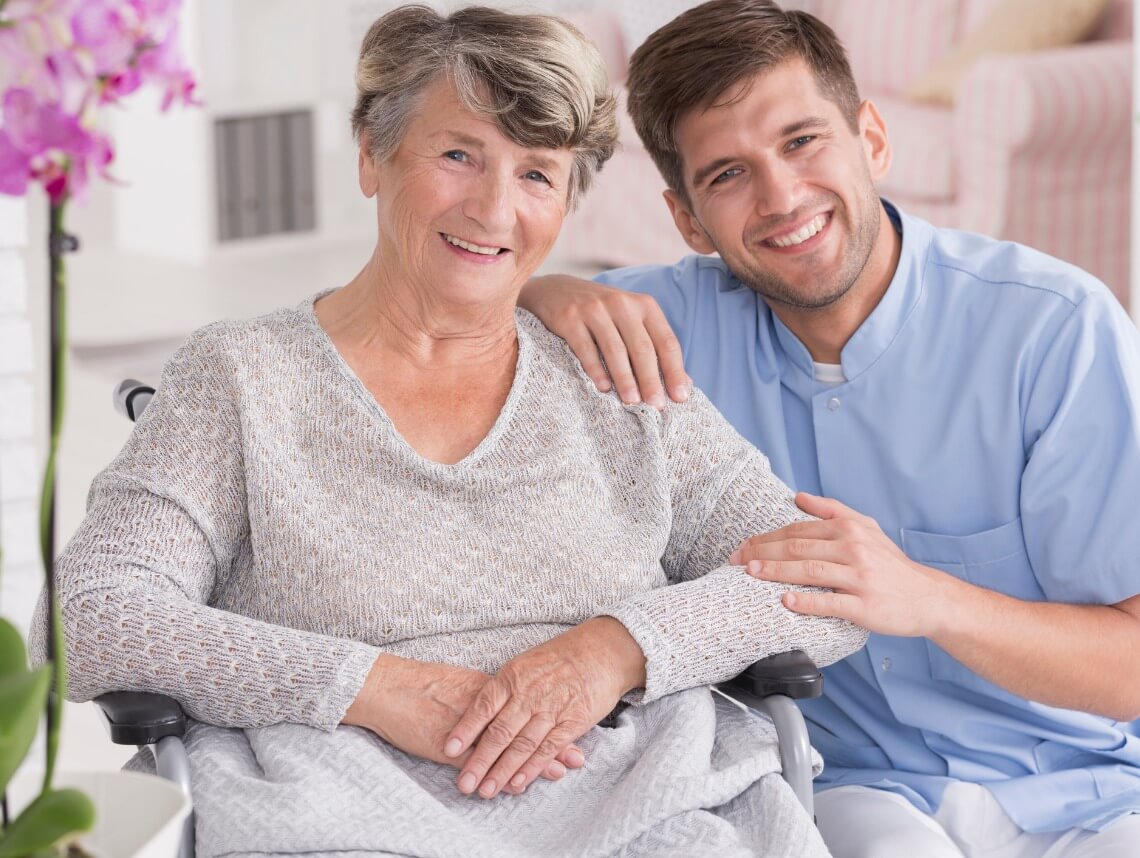According to the National Stroke Association, “Family caregivers can promote positive post-stroke recovery outcomes; however, they need to care for themselves as well.” Because a stroke is usually sudden and unexpected, changes in lifestyles can often be abrupt for both the caregiver and the elderly parent they are caring for. It’s easy to get caught up in caring for your loved one and, before you know it, weeks have gone by without addressing your own needs such as exercise or doing activities you love. Try not to let that happen.
Tips for Caring for Your Elderly Parent After a Stroke
Tip #1. Talk to your parent’s health care team and learn about your parent’s condition. Ask about participating in their stroke rehabilitation so you can better support them in their recovery. Ask about their need for physical or occupational therapy on an ongoing basis.
Tip #2. Take a look at their home to ensure it is safe for their return. This involves removing slipping or tripping hazards that occur with throw rugs and obstacles in pathways. Install grab bars in appropriate places such as the shower and by the toilet. Make sure their home is well lit and nightlights are placed in the bedroom and bathroom. Consider installing motion sensor lighting.
Tip #3. Acknowledge the emotional lows your parent will likely encounter. Depending on the losses that occurred following a stroke, your parent may experience slight melancholy to full-blown depression. Be on the lookout for the latter and let their primary health care team know if you see signs of depression immediately. Knowing they have your love and support goes a long way in helping them see the forest through the trees.
Tip #4. Reduce the risk of another stroke happening. Having one stroke puts your parent at a higher risk of having a second stroke. Lower stroke risk by making sure they are eating a healthy diet filled with fruits and vegetables, and abstaining from alcohol and nicotine. Incorporate exercise into their lifestyle at least 30 minutes a day for 5 days a week. If they need support with this, speak with their rehabilitative care team. Diabetes, high blood pressure, and high cholesterol all increase their risk of a stroke. The correct exercise, diet and weight loss program can usually resolve these issues.
Be Aware of the Signs of a Stroke
As a caregiver, being aware of the signs of a stroke and getting prompt medical attention for your parent can make a tremendous difference in their prognosis and recovery. According to the National Stroke Association, there is an FDA-approved clot-buster medication that can be given within three hours of the first symptom that may reduce long-term disability.
Signs to be aware of include:
- Dizziness
- Numbness or weakness of the face, arm, or leg
- Slurred speech
- Severe headache
Related blogs: Early Warning Signs and Symptoms of a Stroke
Caring for Yourself
Make sure you have scheduled time during the week where you can recharge and rejuvenate.
If family or friends are unable to provide assistance, consider obtaining the services of an elderly care provider. These professionals have cared for many elderly who are recovering from strokes, and you can be assured your loved one is in good hands while you take time out to do the activities you love.
Contact Care Options for Kids for Home Health Care Services
If you or an aging loved one are considering hiring home health care services, contact the caring staff at Care Options for Kids today. (888) 592-5855.
Sources
American Stroke Association






